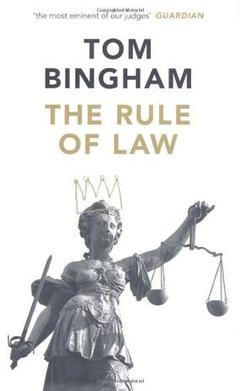The language ofcontract law
1、consideration: is what oneparty promises to give to , or promises to do for ,the other party.Both party need to provide consideration to make a contractvalid.(对价、报酬) eg. Consideration in contract law requires theparties to gain a benefit or suffer a detriment.
2、forbearance[n]: is a promisenot to do something in the future; a delay in enforcing rights orclaims or privileges; refraining fromacting.((债权人权利的)延缓行使;(债务清偿期的)延展)
3、lapse[v, n]: means end,invalid because a long time has been passed.((由于未能履行义务或行使权力而导致权利或特权的)失效,终止,丧失) eg. An offer can come to an enddue to lapse of time. It means that too much time has passed sincethe offer was made.
4、counter-offer[n]: meansthe legal effect is to cancel the original offer.(反要约、改变要约)
5、reject[v]: means the legal isto cancel the offer.(拒绝)
6、revoke[v]: means annul byrecalling or rescinding.(撤回)= withdraw eg. When a person who makesan offer withdraws it before it can be accepted we can say that theoffer has been revoked.
7、detriment[n]: means a damageor loss.(损害)
8、offer[n]: means a proposal,the terms of which are certain or the proposal is on absolutelycertain terms.(要约)
9、acceptance[n]: means anunconditional agreement to what is proposed by the otherparty.(承诺)eg. The relevant precedent says that acceptance of anoffer must be communicated and cannot be made by silence.
10、precedent[n]: means adecision of a judge in an earlier case that other judges mustfollow if the circumstances of the situation are the same orsimilar.(先例) eg. Check the relevant precedent.
11、case[n]: means a set ofarguments in a situation that might become legal or is alreadylegal in nature.(案例)
12、contract[n]: means a legalagreement made between two or more parties.(合同)
13、obliged[adj]: means that youmust do something. It is necessary to do it.(有责任的、必须的)
14、unconditional[adj]: meansabsolute, without any doubts or suggestions of change.(无条件的)

15、no good: an informalway of saying not suitable or not acceptable.
16、parties: means the people whohave entered into a contract or the people involved in adispute.
17、terms: means all of theduties and conditions contained in a contract.(条款)eg. (1)when yousign a contract you agree to all of the terms that it contains. (2)She explained the terms of the contract to her client.
18、terms: means words andexpressions.(术语)ed. (1) A lawyer sometimes uses legal terms thathis client might not understand.
19、term: means a single duty orcondition contained in a contract. It is sometimes called aprovision.(条款)eg. (1) There is a term in this contract that forbidsyou to sell goods in Australia or New Zealand. (2) There is usuallya term in most commercial contracts dealing with the jurisdictionof the contract in case of disputes.
20、term: means the duration of acontract.(期间)eg. (1) For the entire term of this contract theemployees shall not disclose any confidential information to anythird party. (2) The term of this contract is one year, commencingon the date of signature.
21、third party: meanssomeone who is not one of the two main parties involved in acontract or a particular situation.(第三方)
22、jurisdiction: means legalpower over a geographical area or people.(司法权、管辖权)
23、condition: means somethingthat you have to do in order for something else tohappen.(条款、条件)
24、contrary to: meansagainst.(违反)eg. Business contracts must not be contrary to case lawor to Acts of Parliament.
25、enforceable[adj]: meanscapable of being enforced.(可实施的)eg. It is not an enforceablecontract.
26、capacity tocontract: means that when a person signs a contract theymust be old enough to consent(say yes) to it, and not mentally ill,and not drunk or using drugs.(缔约能力)
27、voluntarily[adv]: mean bothparties must have entered into or signed the contract freely andnot under duress(pressure).(自愿地)
28、deed[n]: A deed is sometimescalled a contract under seal. It is a special contract that islegal even though one of the parties has not providedconsideration.(契约、正式合同、行为)
29、discharge[v]: means acontract comes to an end.(终结)
30、breach:[v] to break acontract, not to fulfill your contractual obligations in some way;[n] means a failure to carry out the terms of acontract.(不履行、违背)eg. If one party breaches the contract the injuredparty can sue the party in breach. The injured party is theclaimant and the party in breach is the defendant.
31、consequential loss: It issomething that you suffer as an indirect result of the breach ofcontract.(间接损失)
32、recorded: As judges’decisions were written down, in law reports that were common to thewhole country, the idea of precedent developed.
33、courts of firstinstance: means the lowest courts.(初级法院、初审法院)
34、ratio decidendi: Thisis Latin for the reasoning behind the decision.(判决理由)
35、obiter dictum: issomething that is not really necessary for the legal basis for thedecision.((法官非决定性的或无约束力的)附带意见)
36、a sauce of law:means a place where law comes form, for example, a civilcode.(法律渊源)
37、a body of laws:a collection of laws. All of them together.
38、a pronouncement: means anold-fashioned word meaning a judge’s words at the end of a casegiving his or he decision.(判决、宣告)
39、a principle of law: means anaccepted idea that forms part of the law.(法律原则)
40、a factor : meanssomething that is important to consider when making adecision.(因素)
41、relevant: means ofsignificance or importance to a particular situation.(重大意义的)
42、offeror: means the person whomakes an offer.(要约人)
43、offeree: means the person whoreceives the offer.(受要约人)
44、cover[v]: to deal with, orinclude something.(处理、包括)
45、liability: if you haveliability ofr something it means that you have legal responsibilityfor it.(法律责任)
46、collocation bank: asource of law; to draft a Bill; to drawup a Bill; to debate a Bill; to suggest anamendment; to make a decision; to form a new law; tohand down a judgment; to issue a new precedent; to decide a case; to make aproposal/suggestion.
47、preposition bank:
(1) a source of law. Eg.Legislation is the UK’s most important source of law.
(2) to be drafted by a lawyer.Eg. This Bill was drafted by a lawyer in the Civil Service.
(3) to put an idea forward forconsideration. Eg. This idea was put forward for consideration bythe Department of Health.
(4) to suggest an amendment tosomething. Eg. The House of Lords is suggesting two significantamendments to this Bill.
(5) to come into force. Eg. Thenew Act of Parliament will come into force at midnight tonight.
(6) a precedent is bindingon/upon lower courts. Eg. A precedent from 1908 isbinding upon the court in this type of situation.
(7) to pass through a stage(thatis one of several stages). Eg. The proposal for a new Education Actis still passing through the early stages.
48、a contract provision:is a term contained in a contract.
49、a third party to acontract: is a person who has not signed the contract but maybe affected by it .
50、to enforce a term: is to makesure that the term is obeyed.
51、to expressly confer a right or abenefit upon someone: is to write in a contract that a persondefinitely has that right or benefit.
52、the construction of acontract: is the interpretation of it. The verb is to construe,meaning to interpret.
53、an enforceable term or anenforceable contract: is a term or a contract that a court willrecognize as valid and will give a solution, known as a remedy, tothe injured party if the term or contract is breached.
54、to be a member of a class: isto be a member of an identifiable group of people.
55、a remedy for breach ofcontract: is a solution provided to an injured party in casesof breach. It is sometimes called ‘relief’. The remedy is usuallydamages but there are other solutions, or relief, available at thediscretion of the court.
56、an injunction: is a courtorder that orders the party in breach to stop behaving in a waythat breaches the contract. It is generally an order to stop doingsomething.
57、specific performance:is a order from the court that obliges the party in breach to dowhat they promised to do under the terms of the contract.
58、collocation bank: togive judgment for the claimant/defendant; the extentof an obligation; to constitute consideration.
59、preposition bank:
(1) to do something on someone’sadvice. Eg. On my solicitor’s advice I decided not to sue.
(2) to continue to do somethinguntil a certain date. Eg. Your husband will be obliged tocontinue to support your children until they have all finishedtheir education.
(3) to sue on a promise. Eg. Shesued him on his promise to deliver the goods on time.
(4) to give judgment for theclaimant/defendant. Eg. I’m sorry but the judge gave judgment forthe other side.
(5) to be under a legalobligation. Eg. You are under a legal obligation to carry out yourobligations.
(6) an agreement between twoparties. Eg. There was a clear agreement between us that you wouldprovide half of the finance for this project.
60、There are five ways in which thisoffer can come to an end: revocation; rejection; counter-offer;lapse of time; death of the offeror or offeree.
61、To make the acceptance of theoffer legally binding, how must the offer be accepted?
(1) The acceptance must be made to theofferor and not to anyone else unless the offeror has authorizedit.
(2) The acceptance must becommunicated. Acceptance cannot be by silence.
(3) The acceptance must be actuallyheard or received in writing to be effective.
(4) If the offer specifies a method ofacceptance you must accept it using a method that is no lesseffective than the method specified.
(5) A request for more information isnot the same as a counter-offer and will not have the effect ofrejecting the original offer.
If any of these situations arise thenthere has been on acceptance and therefore there is no contractbetween the parties.
62、collocation bank: todo your homework; to make a counter-offer; torevoke an offer; to reject an offer; to gain abenefit; to suffer a loss; to be contrary to publicpolicy or to the law in general.
63、preposition bank:
(1) to buy tickets to/for anevent. Eg. We want to look after our new client very well. Let’sget him some tickets to the opera.
(2) to accept something bypost/email. Eg. I sent the cheque by post.
(3) to put something in writing.Eg. If you have evidence in writing it will help us to persuade thejudge.
(4) a case/new law from aparticular year. Eg. In defence of my client I cited a case from1995.
(5) to do something by aparticular time in the future. Eg. We need to have this documentready by five o’clock.
(6) to enter into a contract oragreement. Eg. You should not have entered into this loan agreementunless you were sure you could make the repayments.
(7) to make a donation tocharity. Eg. She made a donation to a charity for homeless peoplewhen she won the lottery.
64、collocation bank: toannounce the acquisition of a company; to create alegally binding contract; to be awardeddamages; the performance of a contract; to fail toperform your duties under a contract; to rectify a problem;to grant someone a right to do something; to becovered by a particular law; a batch of goods.
65、preposition bank:
(1) a contract between twocompanies. Eg. There was an oral contract between the two oilcompanies.
(2) to be awarded an amount ofmoney in damages. Eg. The judge awarded us $10,000 indamages.
(3) in exchange for something.Eg. I gave him my car in exchange for his van.
(4) to give notice of something.Eg. In his letter he gave us notice of his intention to sue us.
(5) to buy goods from someone.Eg. We buy most of our electrical goods from King Electrics.
(6) to supply someone with areplacement. Eg. When my car broke down last month my insurancecompany supplied me with a replacement.
(7) to sue someone on thegrounds of something. Eg. We sued them on the grounds of breach ofcontract.
注:非经作者本人允许,不得转载!
 爱华网
爱华网


